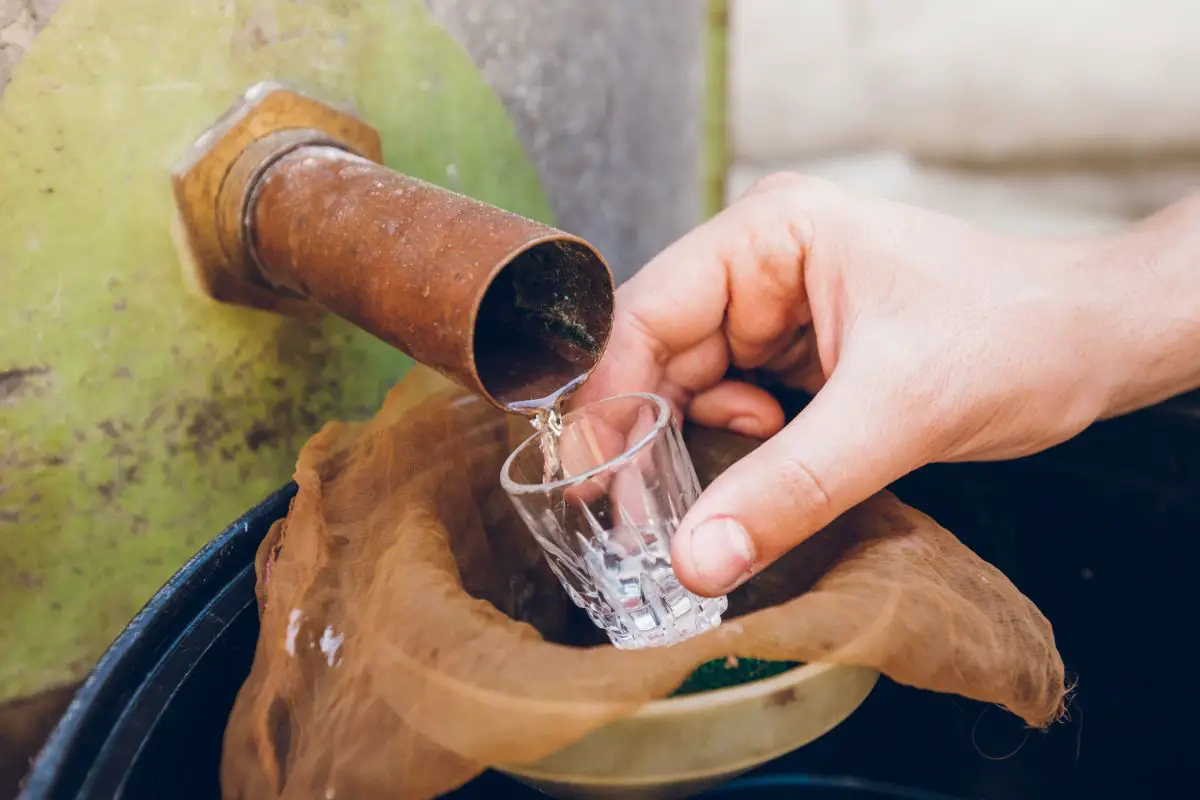Arkansas Liquor Laws and Regulations
Starting your own distillery is a great opportunity to become an entrepreneur and a leader in the craft spirits industry. In Arkansas, distilleries are regulated by the Alcoholic Beverage Control Division (ABC) of the Arkansas Department of Finance and Administration. Read on to understand the Arkansas liquor laws and regulations.
If you’re looking to start a distillery in Arkansas, you’ve come to the right place. In this article, we’ll explain all the liquor laws and regulations that must be adhered to when starting a distillery in Arkansas. We’ll cover everything from obtaining permits and licenses, labeling requirements, taxes and fees, record-keeping requirements, and more.
What Is A Distillery?
A distillery is an establishment that produces alcoholic beverages, such as whiskey and other spirits. In order to produce these products, a distillery must meet certain requirements and regulations established by the Alcoholic Beverage Control Division (ABC) of the Arkansas Department of Finance and Administration.
Is it Legal to Make Moonshine in Arkansas?

Moonshine is an alcoholic beverage made by distilling fermented grain, fruit, or vegetables. The term is derived from the practice of distilling alcohol in a clandestine location during nighttime, often referred to as a “moonshiner’s still.”
Moonshine has been around for centuries and was once commonly produced in the Appalachian Mountains of the Southern United States. Today, it is illegal to produce moonshine in Arkansas, as it is considered to be an illicit and dangerous form of alcohol. Licensed and regulated Distilleries in Arkansas are permitted to produce Moonshine.
Arkansas law restricts individuals to own a moonshine still, distill alcohol for a hobby, or make moonshine. The laws are enforced by the ABC and fines can be up to $10,000 per law broken or up to 6 years of jail time.
If you are interested in tasting moonshine made in Arkansas see our directory of Arkansas Distilleries making Moonshine for your best local moonshines.
Do I Need A License to Distill Alcohol In Arkansas?
Yes, to legally distill alcohol in Arkansas, you will need to obtain a manufacturer’s permit from the ABC. This permit is required for any person or business that wishes to produce alcoholic beverages in the state.
In addition to this permit, all safety requirements must be met and any applicable taxes and fees must be paid. Furthermore, all products must have appropriate labeling that meets the requirements set forth by the ABC – and we will take a closer look at all of these elements below.
Obtaining Permits And Licenses
The first step to starting a distillery in Arkansas is to obtain the required permits and licenses from the ABC. There are several types of permits and licenses that must be obtained in order to legally operate a distillery in Arkansas:
Distiller’s Permit
This permit is required for any person or business who wishes to produce, bottle, distribute, and/or sell alcoholic beverages in Arkansas.
To obtain a distiller’s permit in Arkansas, you will need to apply the ABC, along with a $1,000 fee. You’ll also need to provide proof of your legal right to do business in Arkansas.
Retail Permit
If you plan on selling your product direct-to-consumer (DTC) in Arkansas, then you will need to obtain a retail permit from the ABC. This permit will allow you to open up a tasting room or retail store on your premises. To obtain a retail permit, you’ll need to submit an application along with a $1,000 fee.
Wholesaler’s Permit
This permit is required for any person or business who wishes to distribute and/or sell alcoholic beverages in Arkansas.
Manufacturer’s Permit
This permit is required for any person or business who wishes to produce alcoholic beverages in Arkansas.
Labeling Requirements
To sell alcoholic beverages in Arkansas, all products must have appropriate labeling that meets the requirements set forth by the ABC. Labels must include:
- The name of the product and the type of beverage it is (e.g. whiskey, vodka, etc.).
- The name and address of the producer/distiller.
- The net content or volume of the beverage in liters or milliliters
- The Alcohol by Volume (ABV) percentage of the beverage.
- Any other information required by law.
Taxes And Fees
In Arkansas, all alcoholic beverages are subject to sales tax, as well as a number of other taxes and fees. The specific taxes and fees that you will be required to pay depend on the type of product you’re producing, as well as where it will be sold.
For example, there is an additional fee for the sale of alcoholic beverages at retail stores.
You will need to pay a general sales tax of 6.5% for the purchase of liquor, and all liquor vendors will be required to pay a state excise of $2.50 per gallon, in addition to Federal excise taxes for all liquor that is sold.
Distillery Restrictions/ And Laws In Arkansas

There are a number of restrictions and laws around distilleries in Arkansas, and these include:
Distilleries are not allowed to sell their product directly to consumers, as it is illegal for distilleries to operate as retail store in Arkansas. Instead, distilleries must ship to retailers who, in turn, sell to the customer.
- Distilleries must also comply with the Arkansas dram shop law, which states that no person or business may sell or serve alcohol to any person who is intoxicated.
- The sale of alcoholic beverages on Sundays is prohibited in Arkansas unless this has been voted for by the local county or municipality.
Record-Keeping Requirements
In Arkansas, all distilleries are required to keep accurate records of their production and sales activities. These records must include information such as the types of beverages produced, the amount of each beverage produced, and the amount of each beverage sold.
All records must be kept for at least three years.
Safety Requirements
In order to legally operate a distillery in Arkansas, all safety requirements must be met. This includes having proper fire prevention and control measures in place, such as fire alarms, extinguishers, and sprinkler systems.
The facility must also have appropriate ventilation and lighting in order to meet the standards set by the ABC.
Distilleries are also required to ensure that all employees are properly trained and aware of the safety regulations, as well as any applicable state and federal laws.
What Is Ethanol Fuel?
Ethanol fuel is an alternative energy source that is becoming increasingly popular in Arkansas. It is derived from corn and other plant materials, as well as from the byproducts of distillation processes.
Ethanol fuel can be used to power vehicles, generators, and other machinery. The advantages of using ethanol fuel include its low cost and environmental friendliness, as it produces fewer emissions than traditional gasoline.
Can I Produce Ethanol Fuel In Arkansas?
In Arkansas, it is possible to produce ethanol fuel. This requires a distillery permit from the Arkansas Alcoholic Beverage Control Board, as well as meeting all other state and federal requirements for production.
In addition to obtaining a permit, distillers must also adhere to certain regulations regarding labeling and taxation of the product. Once again, ethanol fuel producers must also ensure that their production facility meets safety standards and that all employees are properly trained.
Final Thoughts
Starting a distillery in Arkansas requires careful consideration of the state’s liquor laws and regulations. It is important to understand all applicable taxes and fees, as well as safety and record-keeping requirements.
Additionally, if you plan to produce ethanol fuel, you must obtain the necessary permits from the Arkansas Alcoholic Beverage Control Board. By following these guidelines, you can be sure that your distillery is in compliance with the law and that your business will be successful.









